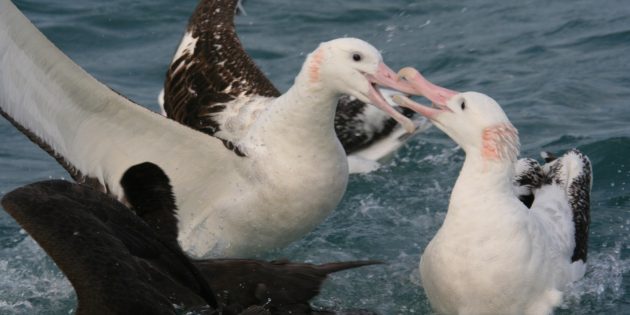
Conservation was in the news again in the last few weeks here in New Zealand, and unfortunately not in a good way. The subject is one that comes up a lot in this blog and other bird blogs, the subject of cats and their effect on wildlife.
As most people know cats, both feral and domestic, have a pretty big impact on wild birds and other wildlife, and the effect of mammals is particularly profound in New Zealand. Cats, along with other introduced mammals, are genuinely a problem in New Zealand in a way they aren’t in most of the rest of the world (Australia has similar problems mostly with foxes and cats). And New Zealand has a fairly aggressive programme of conservation measures in place to protect native wildlife by killing native species, again something I have defended on this site.
That said, I have not been impressed by a New Zealand economist, Gareth Morgan, calling for New Zealand to wipe out cats. Why? Well, cats are a problem, no question, and ultimately wiping out non native predators would be a great thing for the wildlife here. The important word in that sentence, however, is ultimately. The road to a pest free New Zealand is going to be a long one, requiring massive investment, political will and social cooperation. Even wiping out a majority of mammals from the third biggest island is a challenge, and not just logistically. We are certainly many years away from being able to undertake a feat of that magnitude on one of the two main islands. Even wiping out one species, like possums, or stoats, or hedgehogs is probably beyond current methods. It is certainly at this point beyond the means of a nation struggling as most are in a sluggish world economy.
Given the generational battle that will have to be waged, just about the worst thing you can do is alienate half the nation by firing indiscriminate broadsides at what to most people is a cherished family member. Yes, Gareth Morgan’s position, when examined beyond attention grabbing headlines is a great deal more nuanced that headlines might suggest. He isn’t arguing that the state should impose this, he’s arguing that we should act collectively. He isn’t arguing against cats kept in the home, and he is right in my mind to blast the SPCA for doing trap neuter release in New Zealand (something I wasn’t aware anyone was stupid enough to think was a good idea here). But what he hasn’t achieved is making New Zealand’s birds any more safe from cats, what he has done is make New Zealanders who might have felt good about conservationists feel hostile towards them instead. It’s undermined his own laudable efforts to clear the Antipodes of mice.
There is, sometimes, a self defeating tendency in conservation and environmentalism where people would rather attempt to reach an unobtainable pure position than get a muddy but obtainable compromise. But there is no glory in defeat in these fights, and we should aim to get the best we can achieve. Conservationists must be pragmatists. There is nothing wrong with aiming high, so long as it doesn’t undermine your chances of getting the best realistic result. In shooting off his mouth and going for an unobtainable goal I fear that Gareth Morgan has done much more harm than good.













Thanks for an illuminating summary and analysis!
Enjoyed reading this editorial and learning that cats are just about as big a problem for mammals as birds in NZ.
I disagree with the basic premise that one conservationist advocating for more stringent efforts is a setback for the entire rest of the movement however.
I think it helps actually, because it stretches the continuum so that those advocating more moderate measures seem more reasonable, as opposed Gareth Morgan, whose ideas might be considered fringe.
If an individual like Gareth Morgan didn’t exist, then more moderate proposals might be considered the extreme, and cat owners would be less willing to engage with what they might then consider a totally unreasonable position. More extreme positions need to exist for this to happen.
And in general I think it’s good if some individuals are not willing to yield, to say X amount of destruction and mutilation is fine, but only so much.
Frank, in this context I disagree. The current efforts are not currently considered extreme, but may be seen as such ongoing by people who like cats.
Moreover, there is a tendency for opponents to tar us with the motives and methods of the extreme fringe. Hell, this happens in politics too, just ask Republicans if they are happy with their party being defined by the more extreme elements at the moment.
At any rate advocating for something more pure is fine, as I have said, so long as it doesn’t undermine the efforts of moderates.
This is a great post. However, I do have a question regarding the idea that TNR is stupid anywhere in New Zealand. I’m not familiar enough with the size and biodiversity of New Zealand’s cities and other variables such as animal control resources, etc, to have an opinion, but if we believe the science demonstrating that TNR can reduce populations of feral cats when done correctly, then it would seem that there are some settings where it could be a useful tool in the toolbox with proper accountability. I’d be curious to know more about whether SPCA’s activity is hindering efforts at permanent removal or simply filling a vacuum where permanent removal wasn’t viable for whatever reason (budget, resources, social norms, etc.)
Walter Lamb